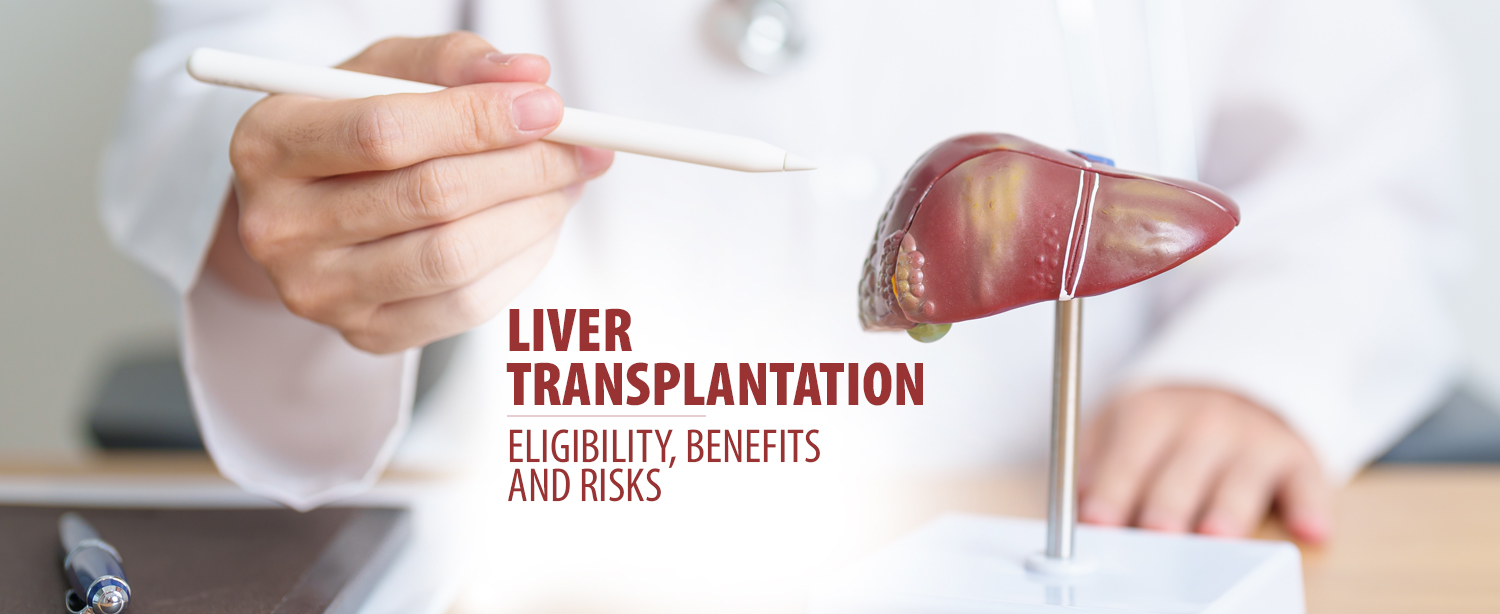The liver is a critical organ in the human body that is responsible for an array of functions that help support metabolism, detoxification, immunity, digestion, vitamin storage, etc. Liver transplantation emerges as a lifeline for those grappling with end-stage liver disease, offering a glimmer of hope in the face of dire circumstances. In India, live donor transplants constitute a significant majority, highlighting the critical need for this life-saving procedure. Following kidney transplantation, liver transplants rank as the second most common major organ transplant in the country. This article aims to spread awareness about the eligibility criteria, potential benefits, and associated risks with this procedure.
Types of Liver Transplant
- Living Donor Transplantation
This procedure involves transplanting a portion of a living donor’s liver to a recipient suffering from end-stage liver disease. Donors, whether related or unrelated, ideally possess compatible blood types with the recipient. - Deceased Donor Liver Transplant
Deceased donation offers a vital option for patients with end-stage liver disease who lack alternatives for survival. Organs harvested from deceased donors provide hope for recipients awaiting suitable matches.
Liver Transplant Eligibility
The journey towards liver transplantation begins with rigorous eligibility assessments for the donor as well the recipient. These include:
Eligibility Criteria for Recipients
- Signs of liver failure or primary liver cancer
- Signs of end-stage liver disease
- Overall physical and mental health conducive to surgery and recovery
- Absence of factors indicating future alcohol or drug abuse
Eligibility Criteria for Living Donors
- The donor could be spouse, siblings, mother or children
- Good Physical and Mental Health
- Compatible Blood type with the recipients
- Age between 15 and 55
- No history of Hepatitis, HIV or cancer
- No History of Excessive Alcohol use
Benefits of Liver Transplant
Liver transplantation offers a multitude of benefits to the recipients, including:
- Enhanced life expectancy, as the procedure replaces a diseased liver with a healthy one, fostering immediate improvement.
- Improved health over time, as the new liver assumes its functions, leading to gradual recovery.
- Elevated quality of life, enabling recipients to partake in activities previously restricted by illness.
- Reduced dependence on medications and treatments post-transplantation, as the new liver functions optimally.
Risks of Liver Transplant
Despite its transformative potential, liver transplantation carries inherent risks, including:
- Infections, which can affect the transplanted organ or other organs, posing a threat to overall health
- Bleeding during surgery, which, though rare, can be life-threatening
- Rejection of the new liver by the body’s immune system, jeopardizing the success of the transplant
- Complications from anesthesia, such as nausea, vomiting, and headaches, which may arise during surgery
- Long-term side effects of immunosuppressant medications, including an increased susceptibility to infections and the development of complications in other organs
Liver transplantation represents a remarkable feat of medical science, offering renewed hope and vitality to those facing the challenges of end-stage liver disease. While eligibility criteria, benefits, and risks vary, the decision to undergo transplantation is a collaborative effort between patients, hepatologists, transplant surgeons and other specialists guided by the shared goal of restoring health and extending life.
Liver Transplant at Kokilaben Dhirubhai Ambani Hospital
Our Centre for Transplant is a state-of-the-art comprehensive liver transplant centre in Western India with an expertise of successful completion of over 283 transplants in the past. The comprehensive liver transplant programme helps in transplanting livers both from living donors and cadavers and is equipped with dedicated Liver Transplant Operation Theatres (OT) and a dedicated Intensive Care Unit (ICU) as well as a team of experienced liver transplant specialists. Please find below our website for further details:


